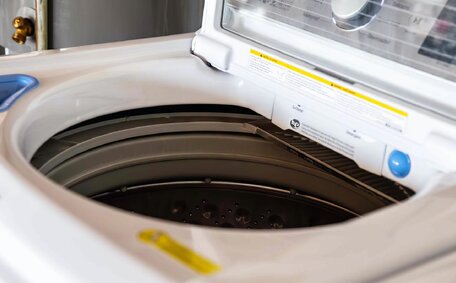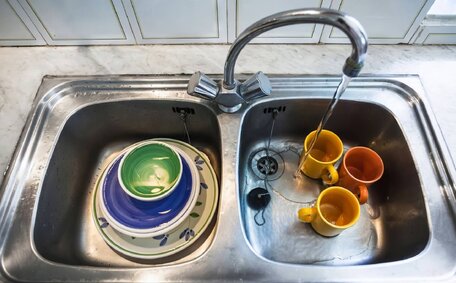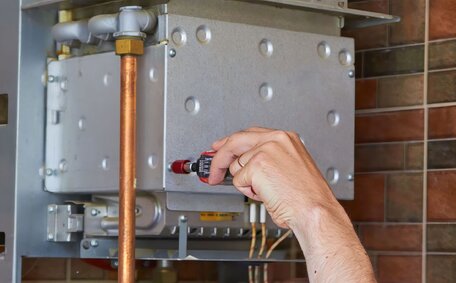How Blocked Drains Can Cause Plumbing Leaks
Blocked drains can create multiple scenarios leading to leaks, as industry experts note. When a drain becomes clogged with food scraps, hair, grease and other debris, disruptions in water flow can occur. Persistent clogs may even cause low water pressure over time.
Over time, a blocked drain can cause excessive pressure that leads pipes to leak or even burst. Standing water backing up from drains and toilets can cause water issues such as burst pipes, flooding into your home and posing health risks. Kitchen blockages can lead to overflowing sinks, possibly damaging surfaces.
Without intervention, blocked drains can cause internal water seepage, risking foundational damage. Moreover, stagnant water from blocked drains can emit foul odours and toxic gases, including from beneath concrete.
Such conditions can lead to mould growth and structural damage, posing health risks. It also attracts pests to moist areas, potentially leading to health issues due to the harmful effects blocked drains can have on your living environment.
As Sydney’s leading plumbing company since 2005, Parramatta Plumbing understands how Blocked drainage in your property can negatively affect your home health, where damage can extend to plumbing and lead to numerous issues. Our qualified technicians have the equipment and expertise to promptly clear a situation where a clogged drain can ensure the integrity of plumbing systems. We ensure that emergency plumbing services for blocked drainage your home are carried out right away, serving homes and businesses in Parramatta and the adjoining suburbs.
Common Causes of Drain Clogs That Lead to Leaks
Do you want to know the causes of drain clogs that affect your home’s drainage and can lead to leaks over time? Here’s what to watch out for:
- Buildup of Fats, Oils and Grease - Cooking oil poured down the kitchen sink can also coat pipes and harden. How do your household items go down the drain and result in clogged pipes? Certainly, when food scraps stick to grease, they create a thick blockage.
- Hair - Hair strands combine and intertwine in your drain pipes, creating clogs.
- Tree Roots - Outdoor drainage pipes that crack can allow tree roots to grow and build up inside, thus obstructing water flow.
- Foreign Objects - Toys or sanitary products that accidentally find their way into drains can obstruct the flow of water.
- Leaves and Dirt - Natural debris like gutter leaves that enters unfiltered outdoor drains can compact inside pipes.
When drains back up due to the clogging issues above, water pressure builds against pipe joints and seals, potentially affecting the walls and floors. Eventually, issues in the pipes can lead to small water leaks occurring. Left unresolved, what may start as a simple clog can evolve into a clogged drain cause leak, floods, and significant water damage over time.
Grease Buildup
Issues with your water heater can also be influenced by grease and fat from cooking, a major cause of clogs in your drain. As grease cools, it solidifies and sticks to the inside walls of drain pipes. Food particles then cling to the greasy residue, accumulating in a way that can cause blockages to form within and prevent movement through sink drains.
This issue is particularly prevalent in restaurant kitchens, and thats because large volumes of oil and grease are washed down sinks daily. But even your sink can be susceptible to clogs which might cause further complications, those related to grease.
Identified as a plumbing issue, the buildup of grease from clogged drains can escalate to significantly obstruct water flow and may eventually cause leaks. This causes water to begin flowing back, increasing pressure on pipe joints. The excess strain can cause joints to leak your precious water resources over time.
Food Scraps
Can clogged drain situations from food scraps washing down kitchen sinks be a major contributor to leaks? Indeed, it can. Items like meat fat, pasta, rice and vegetables can get caught and accumulate in pipes over time. Food caught and left can rot and thicken, which is why we suggest addressing drainage issues promptly to prevent severe narrowing of pipe openings.
In restaurants and other food service businesses, large volumes of scraps frequently wash down sinks. That’s why we suggest commercial kitchens be vigilant about using drain screens and scheduling regular cleanings to prevent major buildup, especially when they use sinks frequently. Homeowners must take care to avoid food-related clogs in their kitchen sinks.
Allowing food items to continually wash down your sink greatly heightens the chances of a significant clog forming. And as that mass expands, the pressure exerted can lead to leaks in pipes, a situation a good drain cleaner which can dissolve organic matter might prevent. So it’s critical to minimise what gets washed down your drains and utilise a drain cleaner which can prevent future clogs.
Hair
Hair washing into your shower drain or bathroom sink during grooming routines can lead to troublesome clogs over time. Strands of hair shed naturally and can easily slip through drain openings where they accumulate.
As more loose hair gathers inside pipes, it tangles and meshes together, reducing water flow bit by bit. Eventually, a large hair mass forms that blocks drainage completely. This hair clog then forces water to back up into pipes, endangering the drainage in your home by applying added pressure on connections.
With excessive water pressure bearing down on fittings and seals for extended periods, the risk of leaks rises significantly. Small drips, indicative of issues in your bathroom plumbing, may start to appear under sinks or around tub overflow drains. But a major pipe leak can develop in the walls behind showers.
Therefore, it’s important to prevent hair from washing down drains. Using drain catchers can help avoid letting hair fall into sinks or tubs during grooming, thus minimising problems. But regular professional drain cleanings are also advised to be proactive.
Signs You Have a Blocked Drain Causing a Leak
There are several signs water problems are impending that indicate you have a blocked drain leading to a leak in your plumbing:
- Slow Draining Sinks/Tubs - If water drains slower than usual and tends to pool before clearing, there may be a clog or any other obstruction building up.
- Gurgling Sounds - Loud gurgling noises coming from the drain often means air is entering the pipe as water is struggling to get through a blockage.
- Sewer Odours - Foul sewer gas smells wafting from drains or sinks is a giveaway that water flow is obstructed.
- Backed Up Toilets - Sewage bubbling up from the toilet bowl is a major red flag for a significant clog down the line.
- Visible Water Damage - Check walls, ceilings and cabinets near sinks or tubs carefully for water marks, which indicate a leak from pressure buildup.
- An unusually high water meter reading may signal a leak caused by a blocked drain.
To guard against escalating plumbing problems, address issues like a suspect water leak due to blocked drainage in your home as soon possible. Catching clogs early is key since clogged drains can lead to water damage and expensive repairs down the road. Spotting any of the above warning signs necessitates calling a licensed plumber immediately to protect your home’s health.
Slow Drainage
Slow building water during drainage is a clear indicator of potential blockages and resulting leaks. When a clog starts forming in pipes, it incrementally impedes water flow. So you may notice sinks, tubs and showers draining sluggishly as pipes water struggles to pass.
As the obstruction grows over time in old plumbing, the volume of water flowing will lessen. Water can start pooling around drains instead of flowing freely. Eventually seals and joints may spring leaks.
Slow draining can lead to a potential water leak in your bathroom kitchen areas. Any leakage lets these contaminants spread into walls or ceilings.
It’s crucial not to ignore slow drains.
A cheap bottle of drain cleaner can clear clog issues fairly quickly. But if using a plunger or cleaning agents don’t rapidly resolve the issues in your plumbing system, contact a professional. The longer the blockage hinders drainage, the more risk of leaks and water damage, underscoring the need to solve problem promptly.
Gurgling Sounds
Hearing loud gurgling noises emerge from sinks, tubs or shower drains is often indicative of a partial blockage. As water attempts to navigate through the constricted opening in the pipes, air gets sucked along, and water can move with an unpleasant glugging sound.
This audible tip-off means drainage flow is hampered. Left unchecked, the obstruction can become critical, for a can clogged drain cause leaks and result in a worsened condition over time. This increases the risk of water backups and leaks from pressure buildup.
Gurgling often happens when water drains or shortly thereafter. These noises suggest that vent pipes are working to alleviate pressure from blockages. But vented air can’t compensate forever and leaks may still develop.
Never dismiss noisy gurgling drains for too long. Attempt the DIY route with homemade remedies like plunging or using a drain snake.
But if sounds persist more than several days, it’s a good idea to have a plumber inspect your pipes. Blockages causing the issues that result in unfavorable water air flow must get cleared to avoid leaks or floods.
Unpleasant Odors
One common indicator that a drain blockage may lead to leaks is unpleasant odours coming from drains. That’s because when debris and waste material accumulate in clogged pipes, they can stagnate and decay over time. This decaying organic matter releases foul sewer gases such as hydrogen sulphide.
As the stench of rotten debris and sewer gas permeates from affected drains or sinks, it signals that a partial or full blockage exists. Unless cleared promptly, the continuing buildup and pressure exerted increase the chances of pipe joints, seals and connections failing - resulting in leaks.
So when foul odours start wafting from drains and sinks, never dismiss it as harmless. Attempting DIY drain cleaning solutions can initially help remove minor obstructions, but not addressing the problem can result in greater issues. But if odours linger, here are some steps to take: contact a professional plumber to inspect pipes thoroughly and clear any persistent blockages before major leaks arise.
Visible Water Damage
There are clear visible signs that indicate a blocked drain is causing a leak in your plumbing:
- Water Marks - Discoloured patches or peeling paint near sinks and showers indicate possible leakage.
- Water Spotting - Inspector flooring and cabinetry adjacent to bathroom and kitchen fixtures for water spot damage. Darkened, warped or bulging spots indicate water intrusion.
- Mould Growth - Contaminated moisture seeping into walls and floors from backed-up drains promotes mould. Visually inspect for concealed mould problems.
- Pipe Damage - Flooding can lead to deteriorating pipes with visible rust or damage, potentially necessitating replacements.
- Sagging Floors or Ceilings - If a drain leak persists undetected, water saturation in ceiling and floor materials causes visible sagging.
If any evidence of water damage from blocked drainage in your home is visible, make prompt contact with a plumber. Blocked drain leaks left unchecked risk the collapse of floors or ceilings, hence it’s important to carry out repairs swiftly, maintaining the drainage and overall home health. To protect the drainage and overall home health, quick professional drain cleaning is crucial.
How to Prevent Blocked Drains and Leaks
There are several crucial steps homeowners can take to avoid blocked drains and resultant leaks:
- Install drain strainers in sinks and tub drains to catch hair, food scraps and other debris before they end up entering pipes.
- Limit pouring fats, oils and grease down kitchen sinks. Allow cooking residue to cool and dispose in the garbage.
- Avoid flushing anything besides toilet paper and human waste down toilet drains to prevent obstructions.
- Run hot water for a few minutes after using sinks and tubs to wash residual particles down pipes.
- Use baking soda and vinegar mixtures or enzyme drain cleaners monthly to clear minor buildup and keep drains flowing freely.
- Keep your garden trimmed and maintain a safe distance of vegetation from external drainage pipes to prevent invasive root blockages.
- Schedule professional drain cleanings every year or two to clear major obstructions before they can cause leaks.
Implementing preventative drain care is vital, and our guide to maintaining the integrity of plumbing throughout your home can help avoid leaks resulting from blockages. If you suspect a clog that persists despite DIY efforts, contact Parramatta Plumbing, and our guide will advise you for prompt attention. Our technicians are skilled in all facets of plumbing work and can accurately identify issues in your homes, restoring proper drainage to prevent leaks.
Regular Maintenance
Implementing regular drain maintenance is critical for preventing blockages that can lead to leaks. Homeowners should schedule professional drain cleanings every 12-18 months to keep pipes clear and flowing freely.
During regular maintenance, our technicians use advanced techniques like snaking and hydro jetting to eliminate buildup. We also inspect plumbing lines condition to spot potential trouble areas prone to future clogging.
We provide recommendations to improve drainage and reduce debris pouring down drains between scheduled cleanings. This regular upkeep is essential to minimise obstructions so water can pass through easily. Maintaining clear pipes avoids pressure buildup that causes leakage over time.
Avoid Putting Grease Down Drains
It’s crucial to avoid pouring fats, oils and grease down kitchen sinks. Allowing grease to wash down drains is a major cause of clogs that can lead to leaks over time. Grease residue sticks to pipe interiors, letting food particles accumulate and eventually block water flow.
The best practice entails pouring surplus cooking grease into containers to solidify, and then discarding it in the rubbish bin. Also, wipe pots, pans and plates containing grease with paper towels prior to washing to remove residue instead of letting it wash down the drain.
Implementing these simple steps helps prevent grease buildup in pipes that causes blockages. By disposing of oil and fat properly, you can avoid added pressure on plumbing from drainage backups. This keeps pipe joints and seals leak-free over the long term.
Use Drain Strainers
Using drain strainers is a simple yet vital preventative measure to catch debris before it enters plumbing pipes, and this is about what you can to keep your plumbing healthy. Position strainers over all sink and tub drains throughout the home. This first line of defence catches hair, food scraps, and other particles, diverting them to the trash.
Drain strainers fitted at sinks should have very fine mesh to capture tiny food bits. Strainers with large perforations still allow some debris through. The goal is to ensure the strainers can do their job in obstructing any solids from entering the drainage system.
For tubs, simple dome strainers suffice. These will primarily catch hair and visible particulates. Combine tub drain screens with hair catchers over shower drains for full coverage.
Take a few moments after each use of sinks or tubs to empty accumulated contents from strainers into the garbage can. Quickly rinsing hair and food bits down Ensure strainer baskets are snugly fitted within drains for optimal debris capture and water flow.






